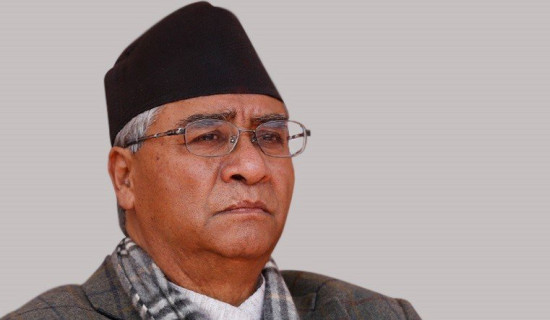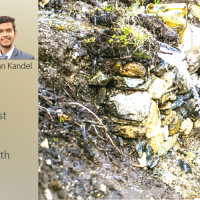- Friday, 29 August 2025
How Literature Transforms Life
We often hear from some people that literature does nothing to change life, so it is useless to write literature. For them, it serves no purpose and thus has no value at all. There has been the age-old contention about the function of literature – whether it alters society through the writer’s message or is an independent artifact detached from the human world. This debate must have arisen at the very inception of its existence and seems to hold sway over the world perennially. Inconclusive though its answer might be, we can deliberate on the subject by asking two fundamental questions: what is literature, and what does it do to people?
I begin with the proposition that literature is different from science. Literature is often imaginary and fictional, whereas science is factual. The literary writer cannot be tied to the fact in the way the scientist is. Any form of literature is based on creativity and imagination. It originates from the joy of creation. The first systematic argument about literature likely began when Plato sought to banish poets from his ideal republic. For Plato, a poet is a false imitator who is thrice removed from truth; literature is three times away from reality because it is the imitation of the physical world, which is already a shadow of the divine idea of the physical world.
Truthful representation
Aristotle, one of Plato’s students, however, contradicted his teacher’s argument. He explained that literature (or tragedy) is the imitation of humans in action, which represents truth as it “is serious, complete, and of a certain magnitude”. For him, even imitation is a truthful representation of the world. Slightly differently, the late nineteenth-century artists, such as Oscar Wilde, presented art as an end in itself, free from the tyranny of meaning and purpose. The exponents of this movement sought to keep literature separate and attempted to remain aloof from the ugly, malignant aspects of mechanical and technological culture. Literature was thus made autonomous, a self-referential, isolated phenomenon complete in itself, not to be contaminated by the external world.
It was thought to be an independent entity, not governed by the laws of stylistic features, floating in a rarefied zone, isolated from the mundane world of ordinary affairs. This view bears some resemblance to the Aristotelian sense of literature. Sir Philip Sidney of the sixteenth century presents literature as a maker of a better world. In An Apology for Poetry (1583), he establishes the poet as the creator of the ideal world. For him, “her (nature’s) world is brazen, the poets only deliver a golden”. The nineteenth-century Romantic poets Wordsworth and Coleridge also presented the exquisite beauty of the natural and supernatural world.
Other writers would like to present the ugly aspects of the world. John Dryden, in the eighteenth century, critiqued the corrupt society through satire. Charles Dickens also presented a corrupt world where the downtrodden, unfortunate people endure endless suffering. At the turn of the twentieth century, a significant shift occurred in the concept of literature. Literature began to address society more comprehensively. Several writers projected the modernist dream through art and literature. Just as social, political, and cultural forces impelled humans to adapt to the new age, so too did artists actively support the political revolution. Pablo Picasso, for instance, created art projecting the modernist dream.
One question that may arise is how an intangible concept, such as literary representation, can impact life, which is governed by science and technology in many ways. One can sometimes find oneself wondering whether the creation of literature is not a waste of time and energy; whether it can feed the hungry millions or console those in immense grief; whether it can alleviate the sufferings of the poor and the diseased. Literary critics share a common understanding that literature can have a beneficial impact on human beings in a specific way. They argue that literary writers are capable of using their faculty of imagination to create literature that enriches life and helps us to find the meaning of our existence. Whether by presenting the beautiful world better than it really exists or rendering it as an ugly place worse than it actually is, the literary writer aims to transform the world, making it a better place for humans to live.
Critics further explain the function of literature in a positive note. They say literature takes us to the other world of imagination, unreality, or even falsehood for a brief period of time. But it soon comes down to the factual world of real-life experience. The writer flies in imagination and brings us back to the down-to-earth realities of the imaginary world. He can go far and wide to contract or expand things to suit his purpose. The literary writer not only presents things as they are, but also suggests what they ought to be. In a sense, literature serves as a medium for individuals with prophetic visions that shape many aspects of the human experience.
Understanding
Thus, any work of literature offers us insight into the world's knowledge, broadening and deepening our understanding of the social, political, and historical aspects of events that have shaped our culture for centuries. It enriches our minds with insights that ordinary people are incapable of; it enables us to select things we like and those that we find distasteful, allowing us to begin to discriminate and distinguish between the significant and the trivial.
If literature helps us to develop the capacity to judge and evaluate, it can be of great use in later life – a teacher can teach students very well, a ruler can govern more assertively, an author can write more skillfully, and an individual can tackle his daily affairs more effectively. Literature enables us to find our place in space and time, to understand our role in the whole scheme of things, to distinguish between ‘good’ and ‘evil’, to share joys and sorrows of other fellow beings, to choose right and reject wrong, and above all to explore the immense possibilities of making individual life better and elevate the society as a whole.
(The author is the chairman of Molung Foundation. bhupadhamala@gmail.com)
















